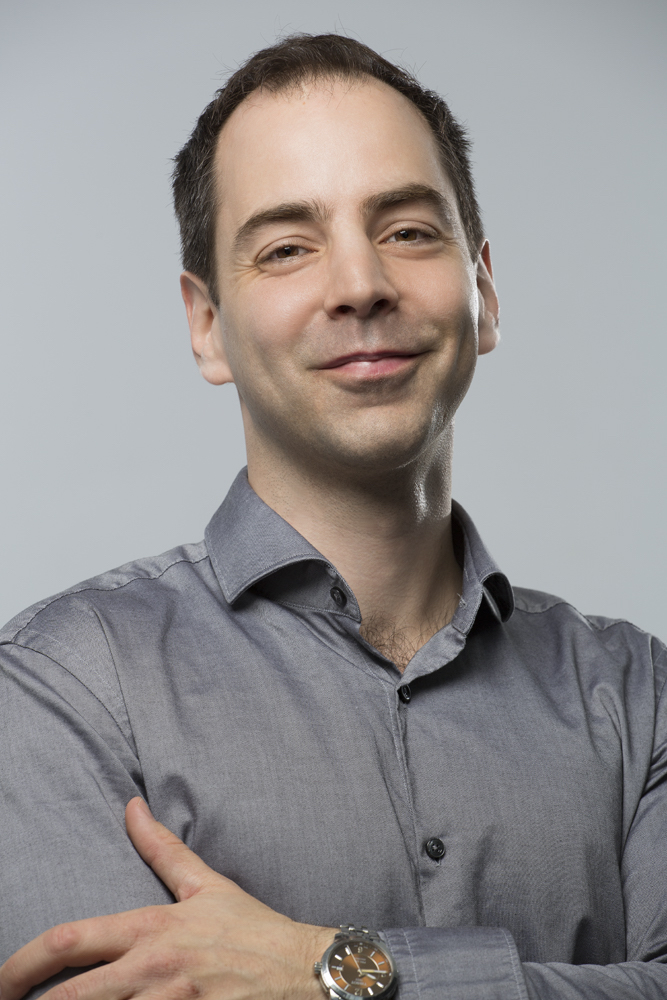
The Linux Foundation offers many resources for developers, users, and administrators of Linux systems. One of the most important offerings is the Linux Certification Program, which is designed to help you differentiate yourself in a job market that’s hungry for your skills.
How well does the certification prepare you for the real world? To help illustrate that, this series features some of those who have recently passed the certification examinations. These testimonials should serve to help you decide if either Linux Foundation Certified System Administrator (LFCS) or Linux Foundation Certified Engineer (LFCE) certification is right for you. In this article, we talk with recently certified LFCE Hugues Clouâtre.

Linux.com: How did you become interested in Linux and open source?
Hugues Clouâtre: I started using Linux and open source software professionally at the beginning of my IT career while attending university. I found the simplicity and flexibility of Linux quite interesting, especially compared to the mainstream operating systems at that time (2004). Red Hat and Debian were the first Linux distributions I used in a business environment. Linux gives you the freedom to experiment — it got me interested right away.
Linux.com: What Linux Foundation course did you achieve certification in? Why did you select that particular course?
Clouâtre: I successfully passed the LFCE certification. Having used Linux professionally for over a decade, I was confident in my Linux skills and thought LFCE would be a great achievement. The hands-on exam is indeed challenging. A vast number of domains and competencies are covered. The LFCE exam requires serious preparation and study, even for the most proficient Linux professional. It is a rewarding experience from which you learn a lot.
Linux.com: What are your career goals? How do you see Linux Foundation certification helping you achieve those goals and benefiting your career?
Clouâtre: I’d like to become Chief Information Officer (CIO). Having an extended technical expertise is a crucial asset for a career in IT, regardless of your role. You have to stay curious: learning is a continuous process. Knowledge, experience and professional certifications certainly help making the right decisions. As Linux is the foundation for many enterprise software, owning the LFCE certification is a great strength. It is the ultimate proof that you’ve mastered this technology. You also get a head start on learning other technologies that rely on Linux such as Kubernetes or OpenStack.
Linux.com: What other hobbies or projects are you involved in? Do you participate in any open source projects at this time?
Clouâtre: I love experimenting with new technologies and software. Automation, orchestration, containerization and serverless applications are examples of interesting and upcoming trends. I like to explore new possibilities: analyze, make it work, simplify, optimize, standardize, and document. I did make contributions in the open source community, though somewhat less in the recent years as my schedule is less flexible than it was.
Linux.com: Do you plan to take future Linux Foundation courses? If so, which ones?
Clouâtre: I am already subscribed to the Certified Kubernetes Administrator course. I plan to achieve the certification in the coming months. Kubernetes is rapidly becoming ubiquitous in IT operations and software development. I also carry significant interest in cloud technologies, security and compliance.
Linux.com: In what ways do you think the certification will help you as a systems administrator in today’s market?
Clouâtre: I currently work as an IT Director. Having technical skills and hands-on abilities always help in IT, whatever your position is. Owning an advanced certification like LFCE is a big plus, as it aligns your methods and procedures with the industry standards.
Linux.com: What Linux distribution do you prefer and why?
Clouâtre: I try to stay neutral and avoid preferences. To like or dislike can sometimes cloud your judgement. The best product for a given task may be one you dislike for reasons that are irrelevant for this particular use case. There are always pros and cons. Alpine Linux is particularly suited to build containers, Debian will give you great flexibility on multiple architectures, and Red Hat Enterprise Linux offers technical support and services.
The first Linux distribution I used extensively is Debian (Woody at that time), so I always feel at home with it. These days I also use Ubuntu, Red Hat, CoreOS, Atomic, and Alpine regularly.
Linux.com: Are you currently working as a Linux systems administrator? If so, what role does Linux play?
Clouâtre: I’m the IT Director at Imagia Cybernetics, a healthcare artificial intelligence company. We use Linux and open source software profusely, as most artificial intelligence (AI) stacks are based on Linux. Having an advanced Linux expertise is essential for my role as head of IT.
Linux.com: Where do you see the Linux job market growing the most in the coming years?
Clouâtre: Cloud computing and clusters are becoming more and more important for any type of workloads. Having a thorough knowledge of containers (Docker), cluster management (Kubernetes) and automation (Ansible) software remains essential for many jobs in operations and development. Managed cloud services (such as AWS, GCP and Azure) are also growing at a fast pace, so it’s critical to be familiar with them.
Linux.com: What advice would you give those considering certification?
Clouâtre: To get started, follow a course like Linux Networking and Administration (LFS211). Read the domains and competencies of both LFCS and LFCE. Practice every single one of them several times. All those areas of expertise should become natural to the point that you immediately know what to do, without searching Google or the manuals. Don’t forget that you are not allowed any material during the exam, besides the command line interface itself.
Get $100 off the most popular Linux Foundation certifications and certification bundles through May 25, 2018. Just use the coupon code CERTSALE18 at checkout to get your discount. Sign up now »
Learn more about Linux through the free “Introduction to Linux” course from The Linux Foundation and edX.
Read more certification stories:
Linux Foundation LFCS & LFCE: Maja Kraljič
Linux Foundation LFCS: Ahmed Alkabary
Linux Foundation Certified System Administrator: Muneeb Kalathil
Linux Foundation Certified Engineer: Karthikeyan Ramaswamy
Linux Foundation Certified Engineer: Gbenga “Christopher” Adigun
Linux Foundation Certified System Administrator: Gabriel Rojo Argote
Linux Foundation LFCE Georgi Yadkov Shares His Certification Journey
